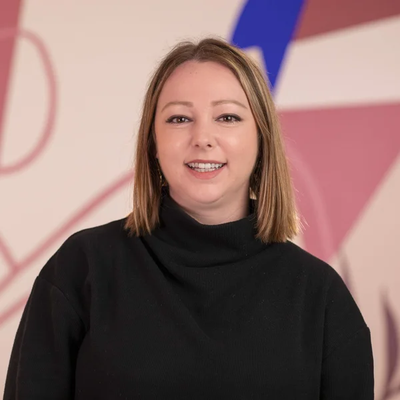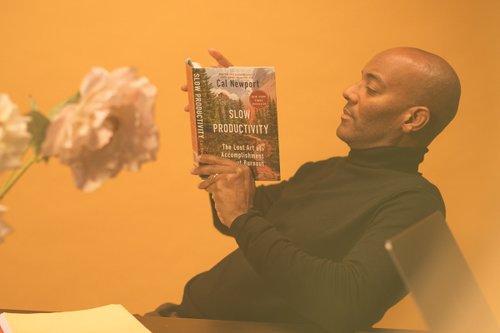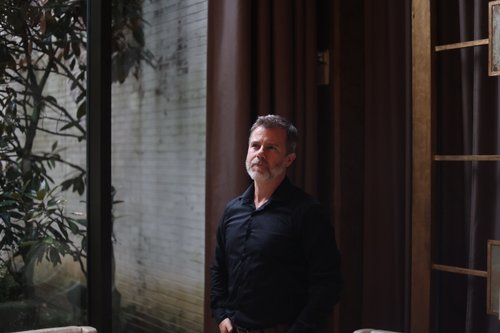Dark side of DINKs: Working as a childfree adult
11 dic 2024
5 min


US Editor at Welcome to the Jungle
A growing number of adults in the US are redefining traditional family dynamics by embracing a childfree lifestyle. Highlighted in a recent Pew Research Center survey and celebrated on social media platforms like TikTok, these dual income, no kids (DINK) couples are prioritizing career ambitions, financial independence, and personal fulfillment. Hashtags like #DINKLife and #Childfree have garnered millions of views, with creators sharing glimpses into lives filled with freedoms such as travel autonomy, career milestones, and financial success—all attributed to forgoing parenthood.
While this lifestyle offers many the opportunity to focus on personal and professional growth, being a DINK also comes with unique societal and workplace challenges.
Forgoing parenthood for passion
On a 15-acre farm in rural Pennsylvania, Charlie Dice, 37, has crafted a life defined by freedom, passion, and professional success. With her husband, she forms a DINK household. Dice has spent 14 years building her career in the federal government’s agriculture sector, while her husband thrives as a sales manager at a local Kubota dealership.
For Dice, the choice to forgo children was multifaceted. “We both were always really focused on our careers,” she explains. “We have always loved traveling, our hobbies, and spending time with the people that we love.” This freedom has enabled Dice to have a career that demands time, travel, and flexibility. “I’ve been able to take positions that move me up the pay scale as well—positions that have more responsibility and require more time out of the home.”
This kind of career progression isn’t unique to Dice, according to Rachel Minkin, a research associate at Pew Research Center who co-authored the report on adults who don’t have children. “Among those under 50 who don’t have children and say they are unlikely to, 61% said not having kids made it easier for them to be successful in their careers,” she explains.
“It’s not about climbing the ladder for the sake of it; it’s about finding work that truly aligns with their values.”
Dice credits her willingness to say yes to these opportunities for helping her advance her career. “Because I haven’t said no to those types of asks over the years—even being kind of ‘volun-told’—that’s helped in progressing my career. I’m always the first in the agency to get those emails when an opportunity comes up.” Dice describes these opportunities as deeply rewarding, noting, “I likely wouldn’t have had the chance to experience them if I had children.”
Jay Zigmont, founder of Childfree Wealth, author of The Childfree Guide to Life and Money, and a DINK himself, says freedom from traditional financial and familial obligations allows many childfree individuals to make intentional and fulfilling career choices. “What we find is childfree people often have the flexibility to follow their passions,” he says, noting that some prioritize roles with significant responsibility and growth potential while others choose paths that are less lucrative but more personally rewarding. Zigmont adds, “It’s not about climbing the ladder for the sake of it; it’s about finding work that truly aligns with their values and interests.”
The hidden burden of being childfree
1. Worklife balance
Life for a DINK isn’t all after-work drinks and last-minute getaways. Dice often finds herself being the “black sheep” in her office, navigating a workplace culture that revolves around coworkers with children. “You’re very stigmatized in the workplace when you don’t have children,” she explains, noting that benefits like PTO or flexibility are often prioritized for parents, leaving childfree employees like her to pick up the slack. “I get asked all the time by my superiors to stay late, work on this project, or be on this task force,” she says.
Zigmont observes a similar dynamic: Childfree folks are often expected to cover for others—whether it’s vacations, late-night projects, or last-minute deadlines. “Because there’s this assumption that they have more time or fewer responsibilities,” he explains. “The classic example is, ‘Well, you don’t have a family, so you can work Christmas.’ That bias is baked into workplace culture…People assume that just because you don’t have kids, you have all the free time in the world to pick up extra shifts or projects. It doesn’t take into account other priorities or commitments that childfree folks might have.”
“People assume that just because you don’t have kids, you have all the free time in the world to pick up extra shifts or projects.”
Pew’s findings align with Dice’s experience. Minkin notes that “39% of employed adults under 50 without children and say they are unlikely to, have been given less flexibility compared to their colleagues with children. 33% report being expected to take on extra work or responsibilities because they don’t have children, [and] 30% say they’ve been given less flexibility than those with children.”
While Dice’s willingness to step up has advanced her career, it comes at a cost—always being available blurs boundaries and increases pressure. Without the built-in boundaries, “It can be very easy to just get sucked into constantly working,” she admits, “You do kind of lean towards being a workaholic unless you are really adamant and insistent on making your hobbies and relationships a priority.”
2. Bonding with your colleagues
Conversations in Dice’s office don’t make things easier. Minkin points out that “32% feel left out of conversations with coworkers who are parents,” and Dice is no exception. With coworkers bonding over stories about their children, she often feels out of place. “Everyone else in my local office has kids—it’s just not something I can relate to,” she says. “When they want to talk about their kids, I just go and do something else,” she adds.
“It’s the sense of being ‘othered’ in a culture that prioritizes family-focused narratives.”
Zigmont explains, “Childfree folks often find themselves as outsiders in workplace dynamics. Conversations and relationships tend to revolve around shared experiences of parenting, leaving those without kids sidelined. It’s not just about being excluded from casual talks—it’s the sense of being ‘othered’ in a culture that prioritizes family-focused narratives. This disconnect can even impact team dynamics and workplace inclusion.”
3. Moments of bias
And then there are moments of outright bias, like when a supervisor told Dice it was her “duty” to have children. Dice filed a grievance and won, but the incident left its mark. “I don’t think a person with children would have ever experienced that in a professional setting,” she reflects.
Beyond overt sexism, Zigmont highlights how workplace benefits often disadvantage childfree individuals. “If you look at health insurance policies, it’s often cheaper to have a family with kids than to have just your spouse. And a lot of employers don’t recognize spouses unless they’re legally married. So, these are all things that disproportionately affect childfree people,” he explains.
He also points out inequities in other benefits. “For example, my wife worked in academia. We could get free college for her and for our kids—which we don’t have—but not free college for spouses. I’m never going to use the other benefit.”
A life of their own
Living as a DINK offers an unconventional freedom, but it’s not without its challenges. For many, like Dice, the decision to remain childfree is deeply personal, rooted in the pursuit of a life defined by passion, professional growth, and autonomy. However, this choice often places individuals in a position where they must navigate workplace biases, societal expectations, and a culture that prioritizes traditional family structures.
“It’s my body, it’s my life, it’s my decision.”
“It’s my body, it’s my life, it’s my decision. You made a choice to have children just as I did not to. So I respect yours; you respect mine,” Dice emphasizes, encapsulating the ethos of the DINK movement. Her words reflect the growing demand for a more inclusive understanding of family dynamics—one that recognizes the legitimacy of different choices and the diversity of modern priorities.
Zigmont echoes this sentiment, advocating for equality in how childfree individuals are treated both socially and professionally. “What I want is an equal set of benefits. You still have a family—it’s just different,” he says.
Photo: Welcome to the Jungle
Follow Welcome to the Jungle on Facebook, LinkedIn, and Instagram and subscribe to our newsletter to get our latest articles every week!

Más inspiración: Future of Work

The Bear: When professional passion turns toxic
Carmy's workplace trauma isn't unique...
31 dic 2024

The youth have spoken: South Korea’s push for a four-day workweek
Is this the end of Korean hustle culture?
26 dic 2024

Cal Newport's Slow Productivity: Redefining success in a hustle culture
Is slowing down the key to achieving more?
19 dic 2024

Wellbeing washing: Are workplace mental health apps doing more harm than good?
Workers are struggling with mental health. Are employers approaching it the right way?
19 dic 2024

Debunking the American Dream with Benjamin C. Waterhouse
Has our economic past and the rise of gig work poisoned our ideas of success?
13 nov 2024

¿Estáis orgullosos de vuestra cultura empresarial?
Dadle la visibilidad que merece.
Más información sobre nuestras soluciones